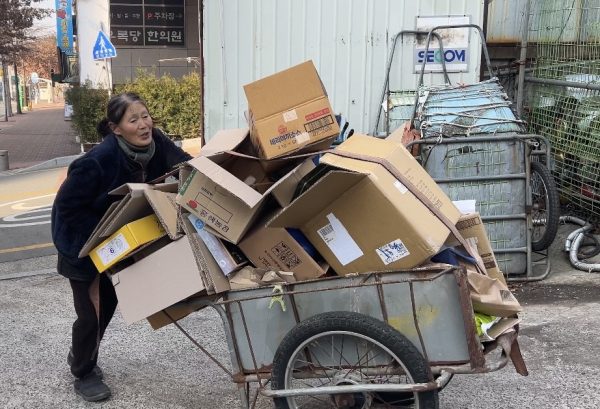
At 5 in the morning, you force yourself out of bed, throw on the first clothes you get your hands on, and step into the bitter cold. Outside, you see your handcart chained to a pole, filled with the previous day’s boxes piled high. You trudge to the nearby scrapyard and stoop down to gather discarded boxes along the way.
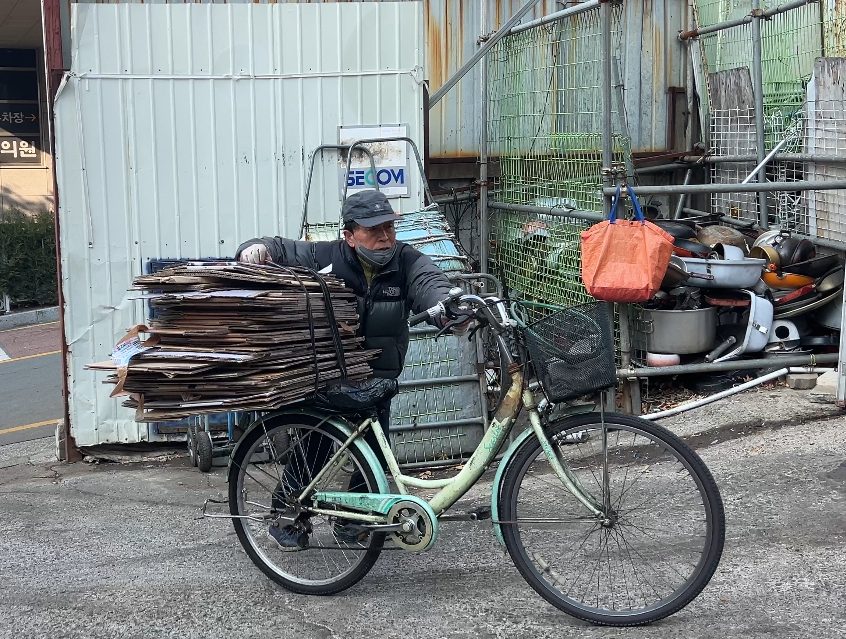
Unfortunately, this depicts the harsh daily reality of South Korea’s retirees. In the shadows, elderly citizens, also known as 폐지 줍는 노인 (pae-ji jup-neun eoreusin), forage for discarded boxes. They scour the streets and alleyways, for an average distance of over 12 kilometers, or up to 11 hours a day, perennially burdened by the weight of their handcarts. South Korea has the highest rate of elderly poverty among nations in the Organization for Economic Cooperation and Development (OECD), and as of 2019, 1 out of every 100 seniors above the age of 65 rely on cardboard collection for a living.

Even worse, the profits of this job have started to dwindle. “Each kilogram of cardboard used to cost around 130 won (10 cents), but now it has dropped to a meager 50 won (4 cents) per box,” said the owner of a local scrapyard in Shincheon-dong.
He also expressed his concern for the senior citizens: “The dangerous part about this job is that there are so many fatalities as a result of the elderly members heading into busy streets with obscured vision due to the retirees’ stooped backs and tall piles of cardboard.” In fact, seniors over 65 years of age accounted for 116 of the 198 pedestrian traffic accidents in 2016~2018.
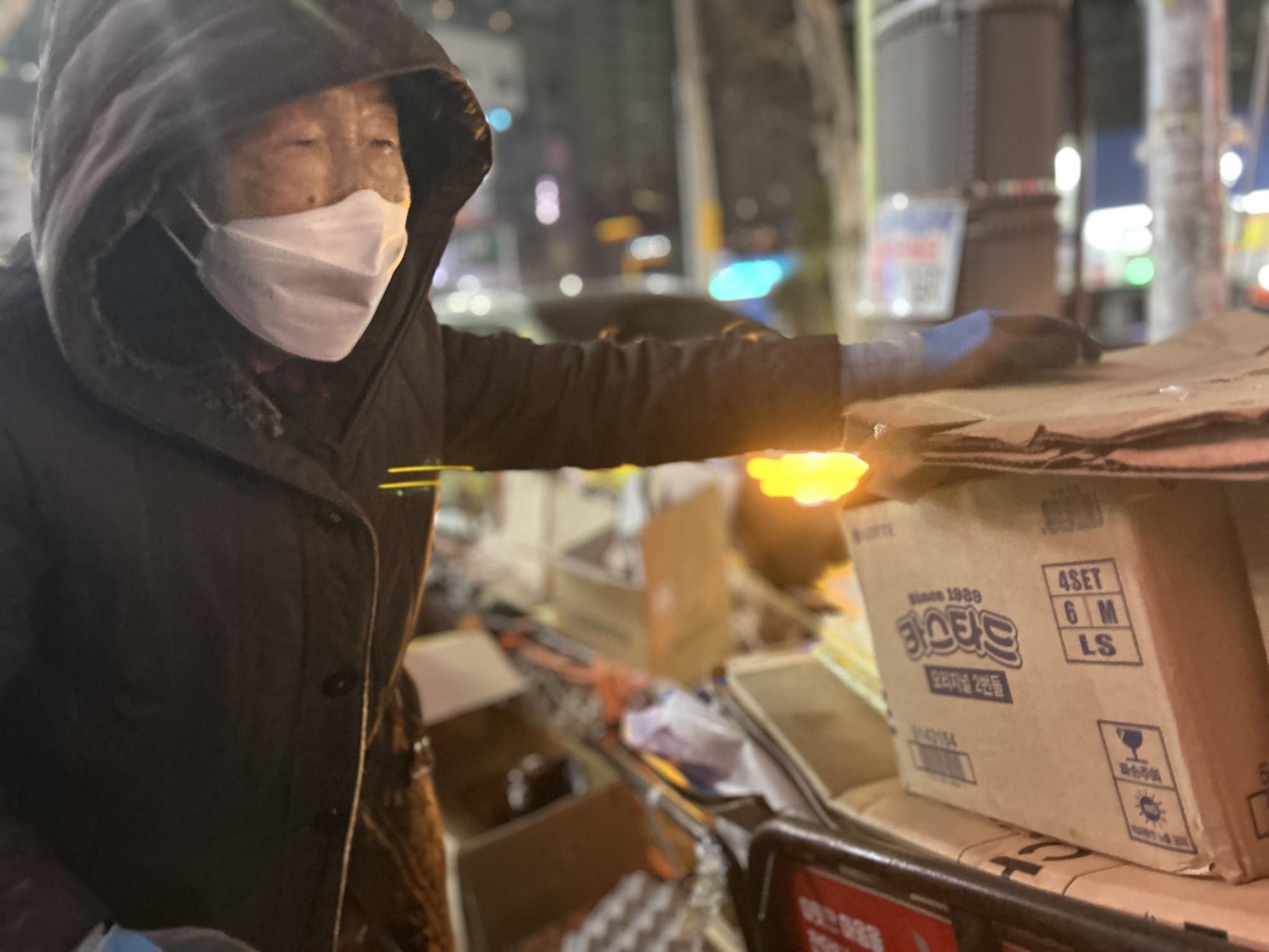
Some people who work this job keep their livelihoods a secret from their loved ones, ashamed of their inability to maintain a stable income. “I don’t want my daughter-in-law to know that I am doing this, and I am pretty sure that others share this thought,” one elder said.
The covert side hustle requires lifting heavy loads and results in increased risk of back injuries and general health impediments. Given the hefty costs of hospital visits, treatment is out of their budget, and the vast majority have no choice but to endure the pain.
Amidst the elders’ arduous lives in the shadows, joy occasionally brings light. A citizen recounted her experience when she received a random act of kindness, “One time, the owner of a mart gave 20,000 won (around 16 dollars) because I picked up cardboard boxes in front of their store. I told them that this is my job, and they replied that they wanted to give money to show their appreciation.”
The senior, who just turned 91 this year, also said, “People from the volunteering centers often bring me food and banchan (side dishes) on Tuesdays.”
The Korean government ranks near the bottom of the OECD in terms of elderly welfare expenditure. With no official solution in sight, seniors still head into the busy streets from dawn to dusk to make a living. Individuals privately reach out a helping hand through financial assistance, medical aid, and other forms of support. Hopefully, in time, the golden-agers will bask in the dusk of their lives.

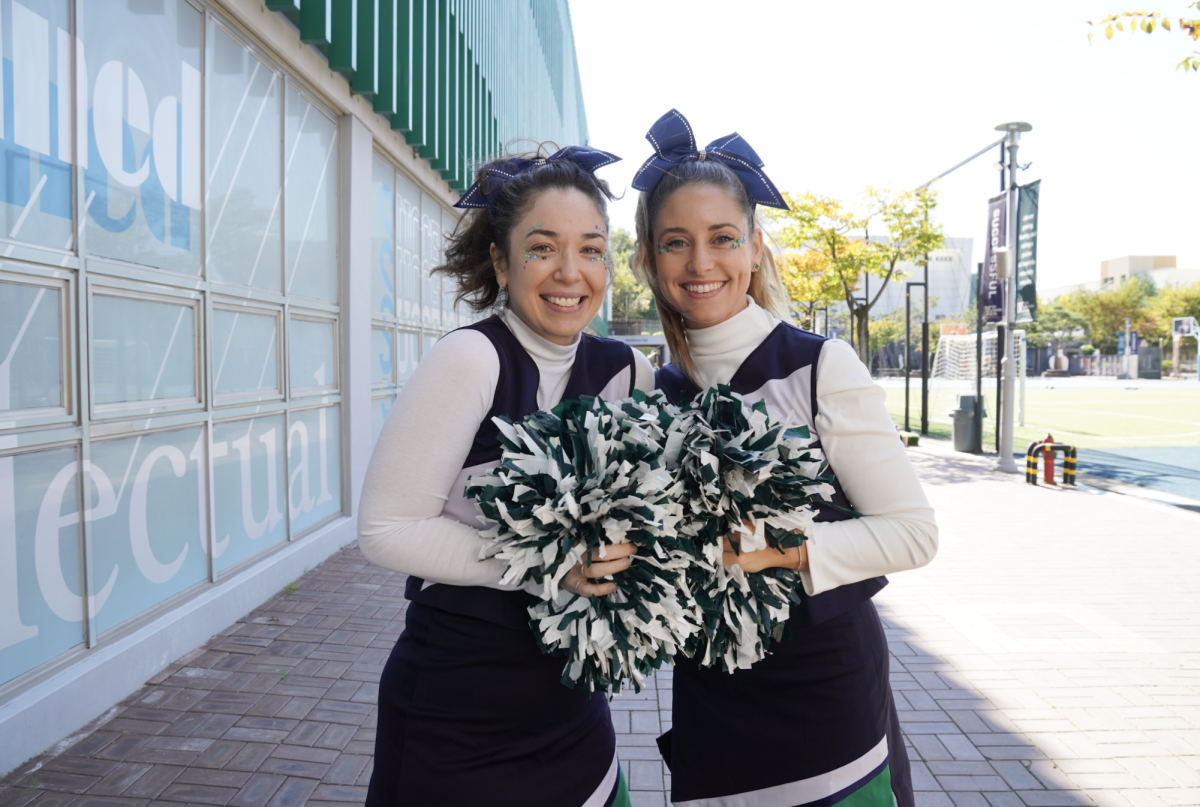
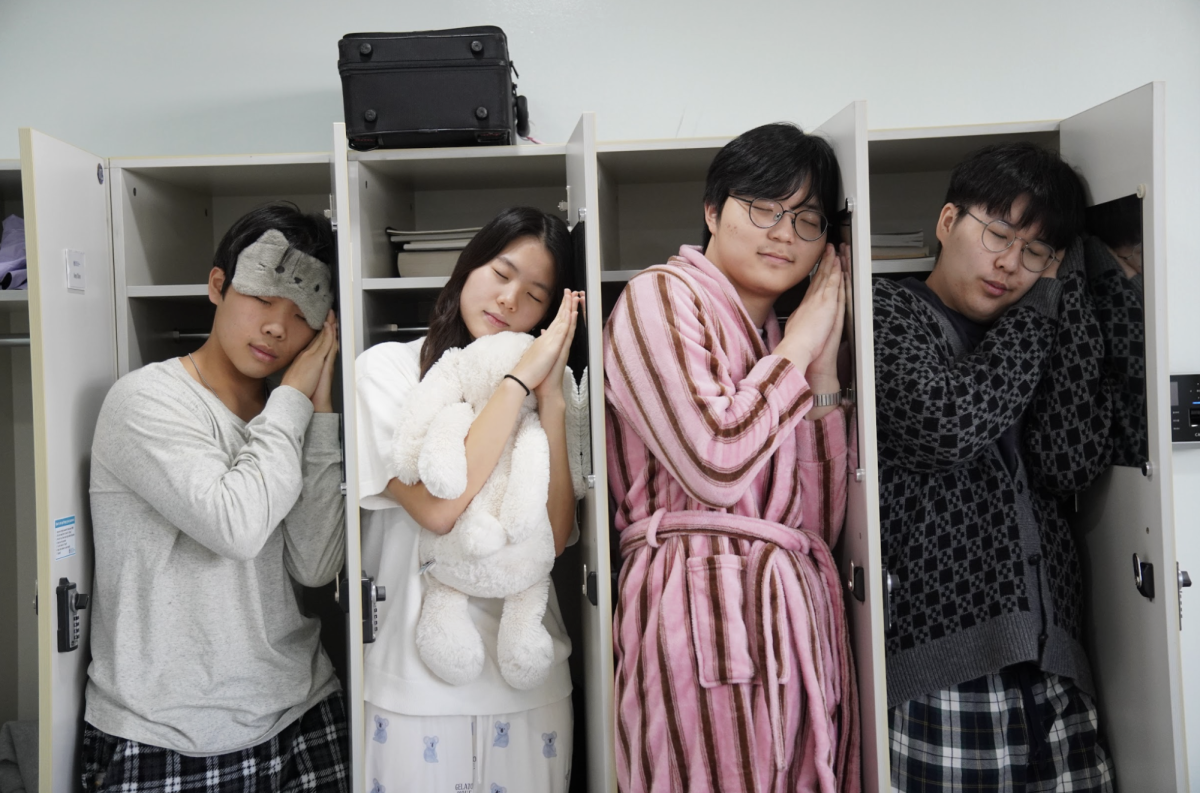
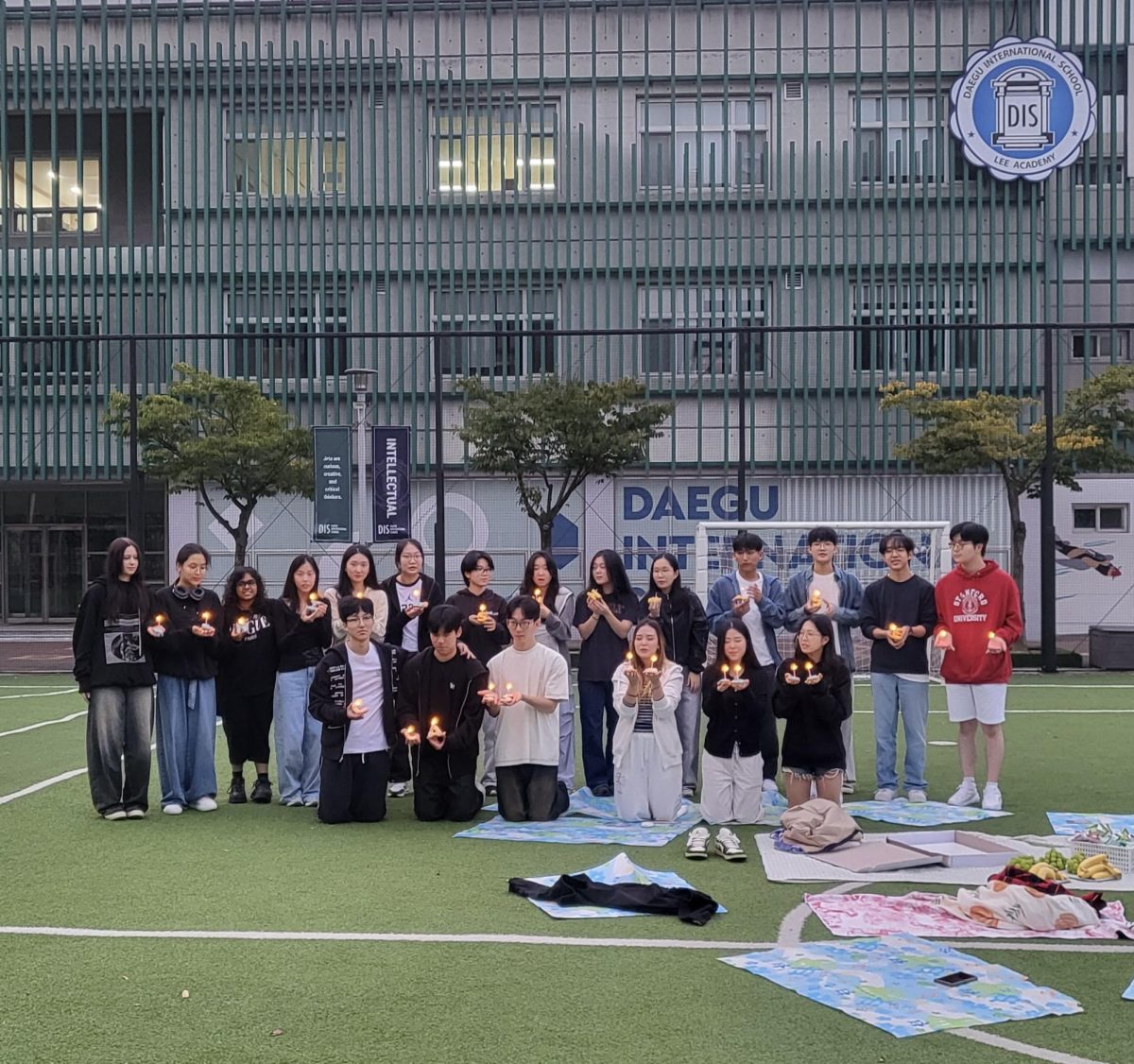



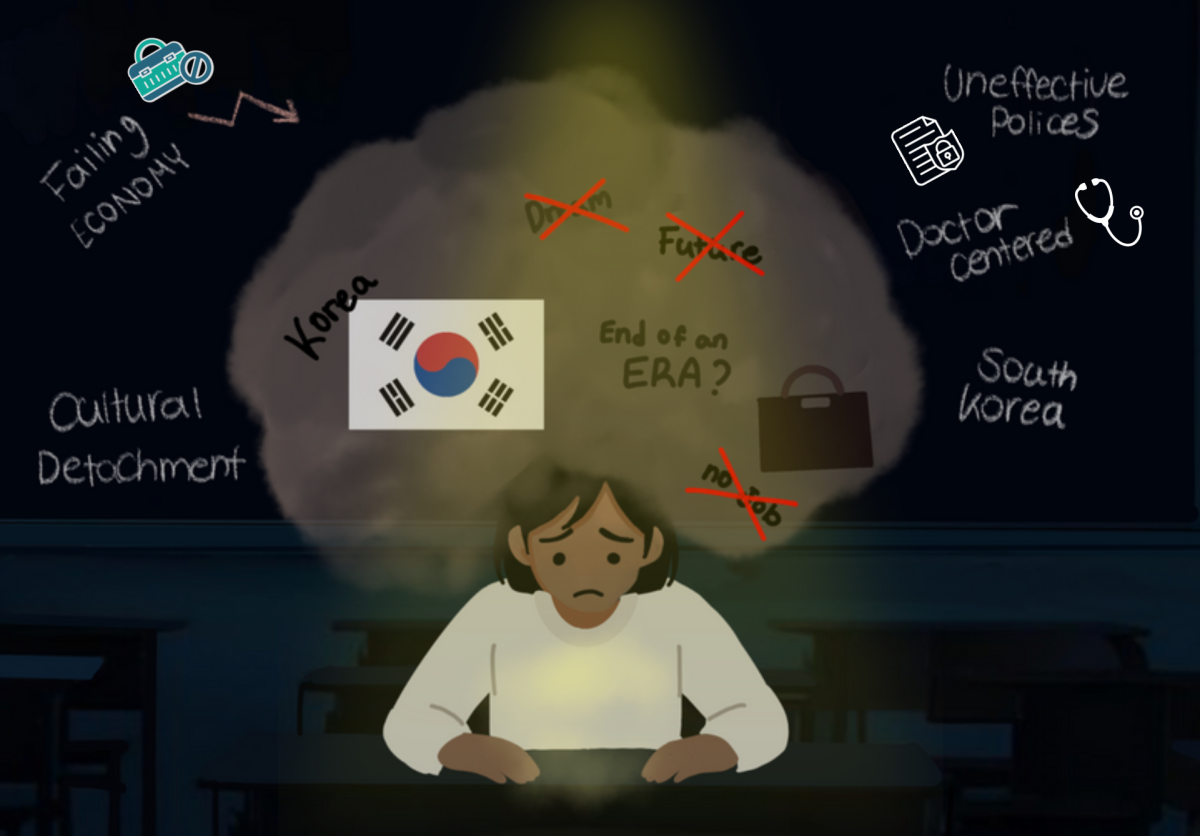











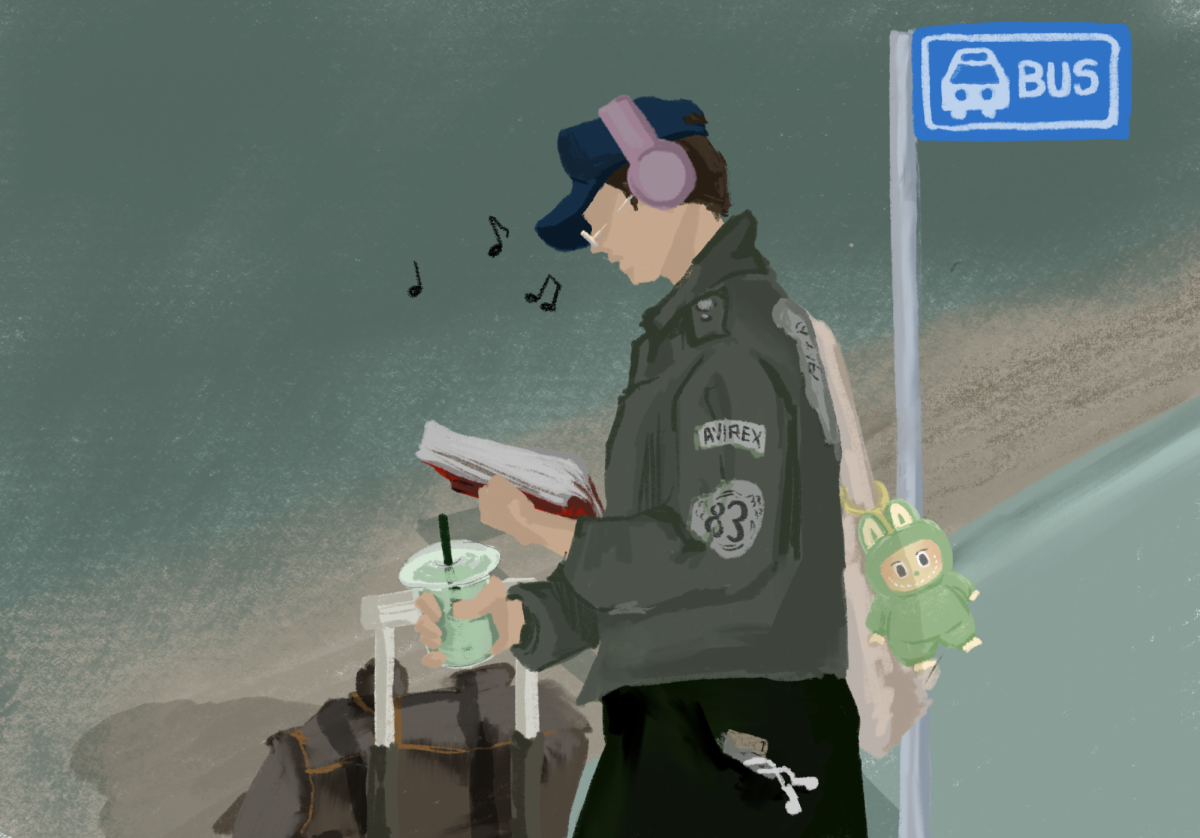











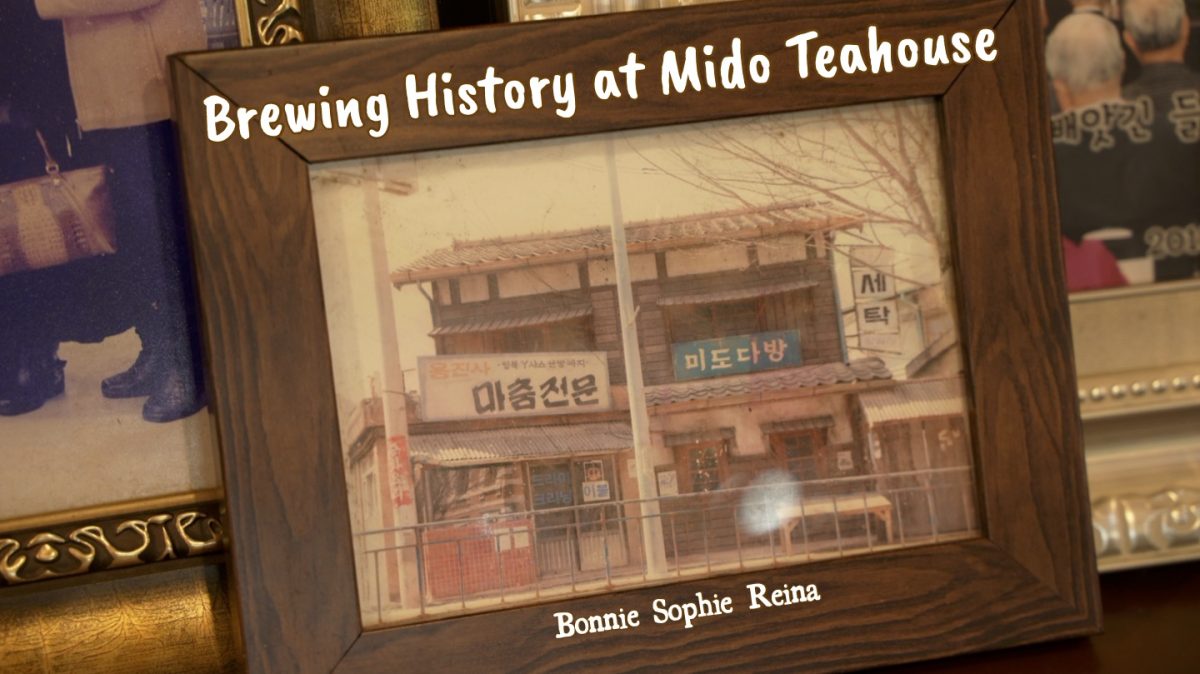





















Scott Jolly • Mar 10, 2024 at 6:01 am
Well done! Thank you for your contribution to the Jets Flyover.
Yujun Piao • Jan 25, 2024 at 6:28 pm
I hope Korean government provides better support for older citizens 🙂